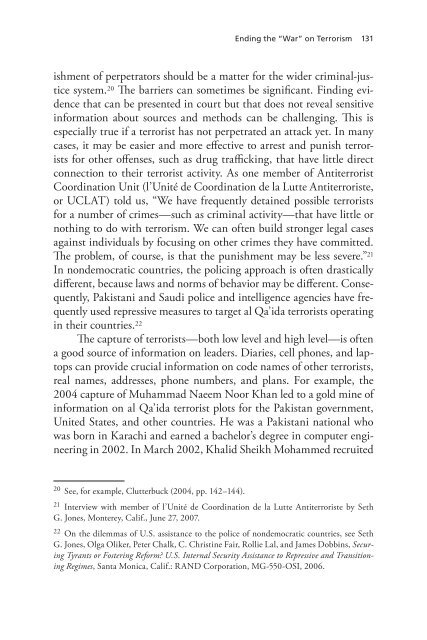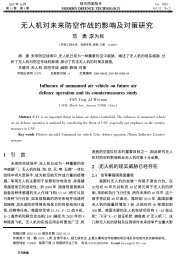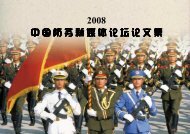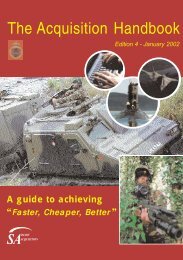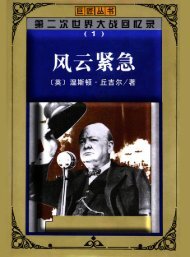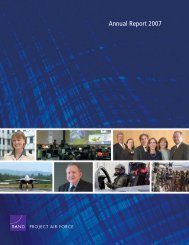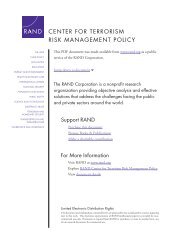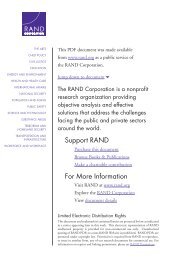How Terrorist Groups End - RAND Corporation
How Terrorist Groups End - RAND Corporation
How Terrorist Groups End - RAND Corporation
Create successful ePaper yourself
Turn your PDF publications into a flip-book with our unique Google optimized e-Paper software.
<strong>End</strong>ing the “War” on Terrorism 131<br />
ishment of perpetrators should be a matter for the wider criminal-justice<br />
system. 20 The barriers can sometimes be significant. Finding evidence<br />
that can be presented in court but that does not reveal sensitive<br />
information about sources and methods can be challenging. This is<br />
especially true if a terrorist has not perpetrated an attack yet. In many<br />
cases, it may be easier and more effective to arrest and punish terrorists<br />
for other offenses, such as drug trafficking, that have little direct<br />
connection to their terrorist activity. As one member of Antiterrorist<br />
Coordination Unit (l’Unité de Coordination de la Lutte Antiterroriste,<br />
or UCLAT) told us, “We have frequently detained possible terrorists<br />
for a number of crimes—such as criminal activity—that have little or<br />
nothing to do with terrorism. We can often build stronger legal cases<br />
against individuals by focusing on other crimes they have committed.<br />
The problem, of course, is that the punishment may be less severe.” 21<br />
In nondemocratic countries, the policing approach is often drastically<br />
different, because laws and norms of behavior may be different. Consequently,<br />
Pakistani and Saudi police and intelligence agencies have frequently<br />
used repressive measures to target al Qa’ida terrorists operating<br />
in their countries. 22<br />
The capture of terrorists—both low level and high level—is often<br />
a good source of information on leaders. Diaries, cell phones, and laptops<br />
can provide crucial information on code names of other terrorists,<br />
real names, addresses, phone numbers, and plans. For example, the<br />
2004 capture of Muhammad Naeem Noor Khan led to a gold mine of<br />
information on al Qa’ida terrorist plots for the Pakistan government,<br />
United States, and other countries. He was a Pakistani national who<br />
was born in Karachi and earned a bachelor’s degree in computer engineering<br />
in 2002. In March 2002, Khalid Sheikh Mohammed recruited<br />
20 See, for example, Clutterbuck (2004, pp. 142–144).<br />
21 Interview with member of l’Unité de Coordination de la Lutte Antiterroriste by Seth<br />
G. Jones, Monterey, Calif., June 27, 2007.<br />
22 On the dilemmas of U.S. assistance to the police of nondemocratic countries, see Seth<br />
G. Jones, Olga Oliker, Peter Chalk, C. Christine Fair, Rollie Lal, and James Dobbins, Securing<br />
Tyrants or Fostering Reform? U.S. Internal Security Assistance to Repressive and Transitioning<br />
Regimes, Santa Monica, Calif.: <strong>RAND</strong> <strong>Corporation</strong>, MG-550-OSI, 2006.


